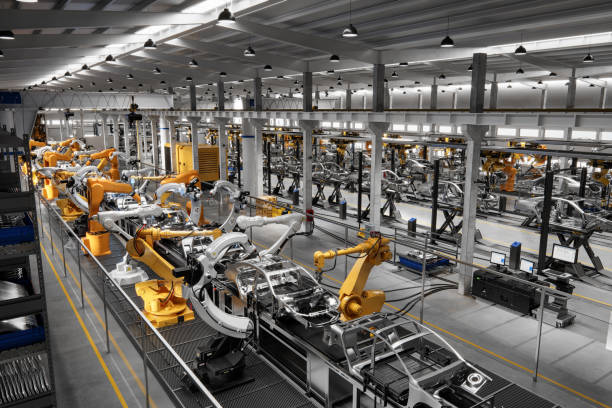The manufacturing process is associated with many processes that make its management a delicate and complex process. Management in factories and industrial facilities needs powerful programs that help them manage operations efficiently and easily, such as Odoo.
These programs should provide easy and smooth management of cost accounting for the various stages of production and manufacturing. Also managing financial transactions from expenses and revenues to ensure profit from the final product that is subject to technical specifications.


Odoo Manufacturing System is interconnected with Odoo Finance and CRM software, to efficiently improve the performance of all business sectors in the manufacturing process.

Manufacturing management software connects manufacturing, inventory management, and accounting to help management ensure sufficient raw materials are available for the manufacturing process, monitor the manufacturing process, continuously review, and track financial matters.

The integrated manufacturing system helps you to organize and facilitate manufacturing operations, obtain an accurate pricing system, and accurately calculate production costs. The system has many features that guarantee you the best management of the manufacturing process.
Manufacturing, a form of commodity production established long before the Ice Age, has evolved into the automated aspect of production we know today. Production management tools should be able to work with numerous operational constraints and control centers.
Manufacturing is not Only about Production...
With a dedicated modular infrastructure, Odoo has well-defined manufacturing management modules that give you full control and 360-degree visibility into the different stages of the manufacturing process. Odoo has specific operational tools that help in planning, executing production processes, performing quality checks, and shipping to warehouses or customers.
Dedicated manufacturing management module.
-
Determines the absorptive capacity and productivity of the factory during a certain period.
-
Then sets the annual, semi-annual, quarterly, and weekly and daily production plan.
-
It enables you to start with customer orders, and convert them into production orders “in the case of production on the basis of orders.
-
Easily defines products, defines the BOM for each product, the stages that the product goes through during operation, as well as the requirements for each stage of “labor, machinery, and raw materials.”
-
Defines the production stages of the production lines in your factory.
-
It identifies the available machines in your factory, the depreciation rate of each machine and its hourly production capacity.
-
Accurate knowledge of the workers in your factory, and connects workers with specific machines.
-
Defines working hours and shifts.
-
Ease of dividing warehouses into “raw warehouses, warehouses for production in operation, and warehouses for finished production.”
-
Operation begins by considering “the numbers of the production order, whether on a production plan, a customer order, or a direct production order.”
- Shows you the estimated cost for the production order, based on the standard cost that is defined with the products.
- Converts the production order into a running order or several running orders.
- Automatically creates exchange requests for raw materials, for operating orders.
- Follows up products within departments and production stages.
- Follows up on operating orders, from start to finish, and spent raw materials.
- The products are passed through the quality testing stage, before being converted to full production.
- Monitors warehouses in operation.
- Easily measures deviations between standard and actual cost for production orders.
- Indirect costs are charged to production orders, at rates that are determined in advance based on previous studies.
- Completes operating orders and transfers products to the full production warehouse, through dedicated screens.
- Determines the requirements of raw materials and compares them with the balances in the warehouses, and creates an automatic purchase request in the event that the current balances are not sufficient for the requirements.
- Provides follow-up reports for operating orders, or the status of production orders.
- Issues follow-up reports of customer orders.
- Provides reports of production stages.

The importance of Odoo in manufacturing
- Manage all commercial and financial operations for manufacturing
- Follow up on manufacturing issues first
- Provide a comprehensive view of what is happening within the department
- Improving the efficiency of the company's manufacturing operations
- Consolidation and simplification of managing your business
- Complete follow-up of various manufacturing operating orders

Advantages of Odoo
- Easy access to data
- Raising efficiency
- Lower costs
- Accurate delivery time
- Improve product quality
- Integration
